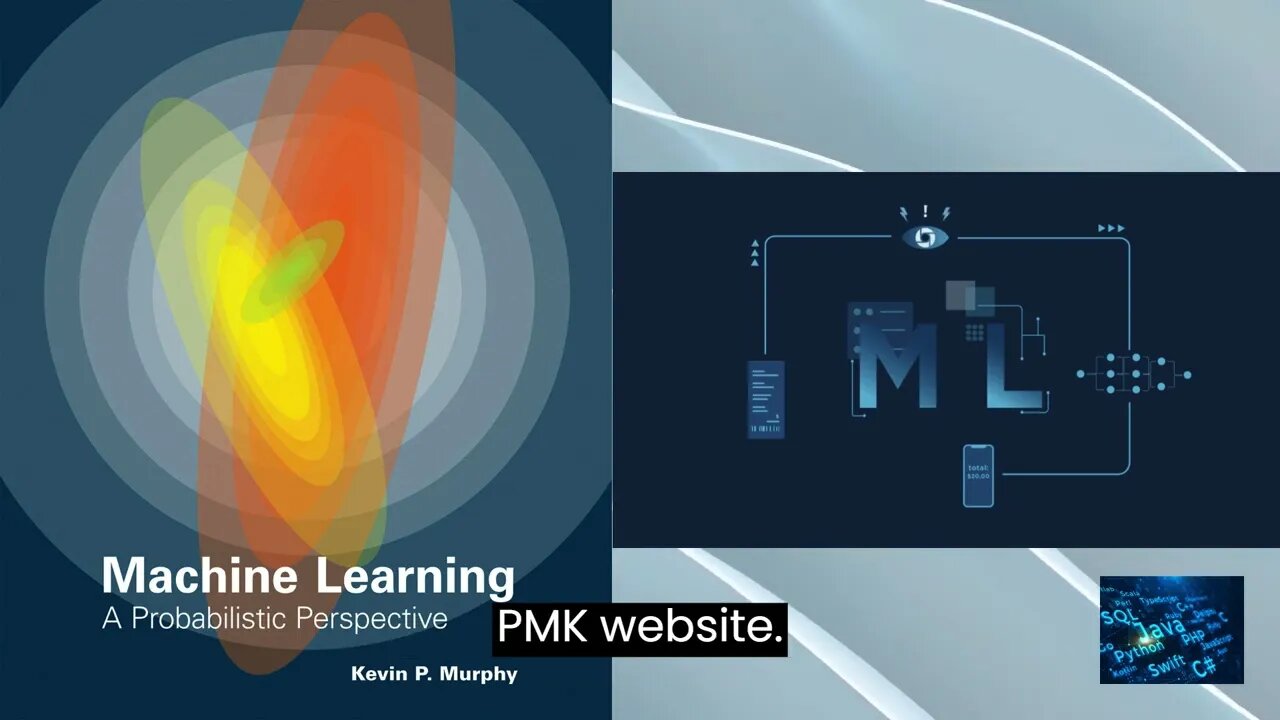Premium Only Content

Machine Learning: A Probabilistic Perspective (Adaptive Computation and Machine Learning series)
You Tube:- https://www.youtube.com/@programmingbookpdf
Linkedin:- https://www.linkedin.com/in/meet-mangukiya-3350a11b6
Website:-https://www.programmingbookspdf.com/
Linktree:- https://linktr.ee/meet.mangukiya2004
Instagram:- https://www.instagram.com/meet.mangukiy/
Telegram:- https://t.me/ProgrammingBookPdf
With the ever increasing amounts of data in electronic form, the need for automated methods for data analysis continues to grow. The goal of machine learning is to develop methods that can automatically detect patterns in data, and then to use the uncovered patterns to predict future data or other outcomes of interest. Machine learning is thus closely related to the fields of statistics and data mining, but difers slightly in terms of its emphasis and terminology. This book provides a detailed introduction to the field, and includes worked examples drawn from application domains such as molecular biology, text processing, computer vision, and robotics.
A comprehensive introduction to machine learning that uses probabilistic models and inference as a unifying approach.Today's Web-enabled deluge of electronic data calls for automated methods of data analysis. Machine learning provides these, developing methods that can automatically detect patterns in data and then use the uncovered patterns to predict future data. This textbook offers a comprehensive and self-contained introduction to the field of machine learning, based on a unified, probabilistic approach.The coverage combines breadth and depth, offering necessary background material on such topics as probability, optimization, and linear algebra as well as discussion of recent developments in the field, including conditional random fields, L1 regularization, and deep learning. The book is written in an informal, accessible style, complete with pseudo-code for the most important algorithms. All topics are copiously illustrated with color images and worked examples drawn from such application domains as biology, text processing, computer vision, and robotics. Rather than providing a cookbook of different heuristic methods, the book stresses a principled model-based approach, often using the language of graphical models to specify models in a concise and intuitive way. Almost all the models described have been implemented in a MATLAB software package—PMTK (probabilistic modeling toolkit)—that is freely available online. The book is suitable for upper-level undergraduates with an introductory-level college math background and beginning graduate students.
#tubebuddy#Keywordtool#vidiq#youtubeautosuggest#googletrends#KeywordKeg#keywordseverywhere#programming#golangprogramming#lispprogramming#roboticsprogramming#recursiveprogramming#programmingalgorithms#cprogrammingifelse#ifelseincprogramming#learningcomputerprogramming#programminginc#programmingtutorials#cprogramming#pythonprogrammingg#programmingpython#programmingforbeginners#programminglanguage#javaprogramming#hmiprogramming#howtolearnprogrammingforbeginners#howtolearnprogramminglanguage#python#java#linearprogrammingproblemg#cprogramming#programmingbasics#pythonprogrammingbasic#learnprogramming#keyprogramming#dynamicprogramming#computerprogramming#programminglanguagecourse#topprogramminglanguages#musicprogramming#cprogrammingbeginners#coding
-
 DVR
DVR
GOP
1 day agoDonald J. Trump Attends the Presidential Parade
344K85 -
 11:51:52
11:51:52
Right Side Broadcasting Network
7 days agoLIVE REPLAY: Inauguration of the 47th President Donald Trump, and Presidential Parade - 1/20/25
1.29M572 -
 4:25:55
4:25:55
Kimberly Guilfoyle
12 hours agoLive Inauguration Day Coverage
185K52 -
 1:06:10
1:06:10
LFA TV
1 day agoThe Return of 45 | TRUMPET DAILY 1.20.25 7pm
94.9K1 -
 1:50:51
1:50:51
2 MIKES LIVE
9 hours ago2 MIKES LIVE #169 Inauguration Day Special!
62.4K12 -
 1:58:10
1:58:10
Quite Frankly
12 hours ago"The Inauguration Day Call-in Show" 1/20/25
57.5K12 -
 1:13:26
1:13:26
The Big Mig™
9 hours agoTrump’s Back!
57.8K13 -
 1:06:36
1:06:36
The Rubin Report
12 hours agoNo One Expected These Brutal Moments in Trump’s Inauguration Speech with Co-Host Sage Steele
146K150 -
 8:34:54
8:34:54
Dr Disrespect
15 hours ago🔴LIVE - DR DISRESPECT - DELTA FORCE - STARFALL NEW SEASON
140K22 -
 1:58:31
1:58:31
Revenge of the Cis
12 hours agoEpisode 1432: Take Two
81K27